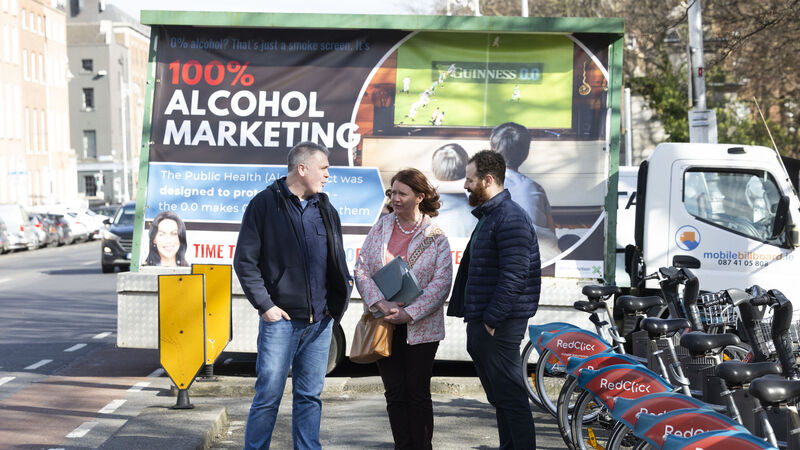'The 0.0 makes 0.0 difference': Protest calls for action on zero-alcohol advertising at sports events

(Left to right) Conor Keane, CEO of Alcohol Action Ireland, Shelia Gilheamy and Policy and research officer Eoin Ryan beside their mobile billboardat today's protest. Photo Sam Boal/Collins Photos
The Government has been urged to “close the loophole” allowing the advertising of zero-alcohol drinks at the likes of Ireland rugby games, when the law prohibits promotion of full-strength alcohol at such events.
On Wednesday, Alcohol Action Ireland and the National Youth Council displayed a mobile billboard outside Leinster House asking minister for health Jennifer Carroll MacNeill to address the issue, which they claimed meant children were “saturated” with advertising for alcohol when watching big sporting events.










